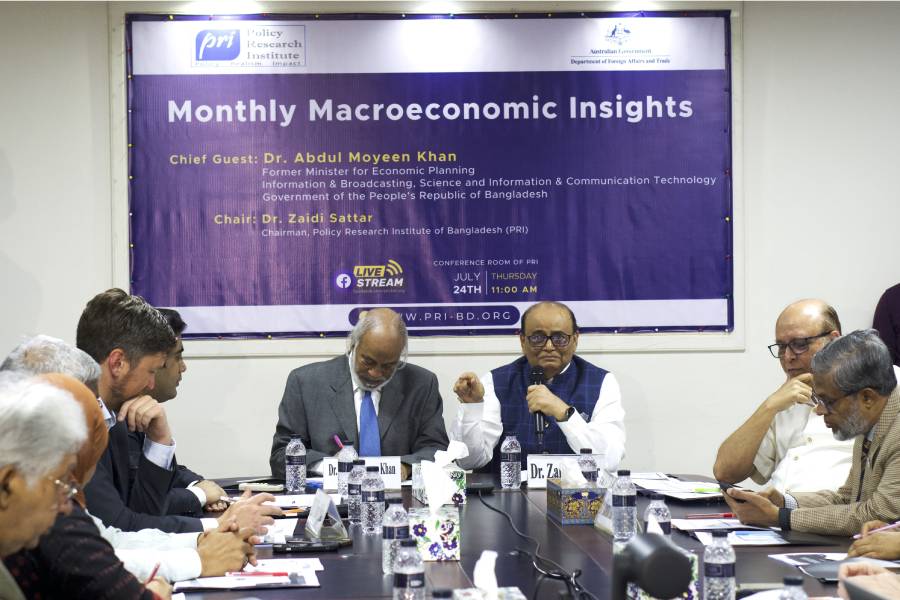
Published :
Updated :

BNP Standing Committee member Abdul Moyeen Khan on Thursday said Bangladesh lags behind its competitors in securing favourable agreements with the US.
“Bangladesh’s export trade heavily depends on effective tariff policies with the United States, but the country lags behind its competitors in securing favourable agreements,” he said while addressing a discussion in the capital.
The Centre for Macroeconomic Analysis (CMEA) of the Policy Research Institute of Bangladesh (PRI), in partnership with the Department of Foreign Affairs and Trade (DFAT) of the Australian Government, arranged the event titled “the July edition of its Monthly Macroeconomic Insights (MMI)’ at PRI’s conference room.
Former Chairman of the National Board of Revenue (NBR) Muhammad Abdul Mazid said the country’s fiscal space is limited. “Reforms, particularly in tax policy, debt management, and GDP calculation, are essential, even if they are painful. Without a clear separation between policymaking and implementation within the NBR, meaningful progress will remain out of reach,” he said.
PRI chairman Zaidi Sattar and PRI principal economist Ashikur Rahman delivered the keynote presentation.
Delivering the keynote presentation, Dr Sattar said Bangladesh’s economy is still investment-driven, not consumption-led. “A slowdown in private credit growth, reduced capital machinery imports, and lower investment, now accounting for around 29% of GDP, are contributing to slower GDP growth, although the macroeconomy remains stable.”
The PRI chairman said Bangladesh has been exporting to the US on the basis of comparative advantage in labor-intensive products such as RMG and footwear. “Given that the US is a large and expanding market, we need a favorable trade agreement with them,” he said.
“Relying on labor-intensive competitive advantage is no longer sufficient. We need a competitive trade deal because if our competitors obtain better trade terms, our global competitiveness will be undermined. This presents a new and pressing challenge that we have to deal with,” he added.
Dr Ashikur Rahman underscored that the measures and policies taken to restore good governance in the financial sector will require continuity over the next one to three years.
PRI Executive Director Khurshid Alam said revenue remains a key challenge and that reforms, such as separating policymaking from implementation in the NBR, are still a work in progress.


 For all latest news, follow The Financial Express Google News channel.
For all latest news, follow The Financial Express Google News channel.